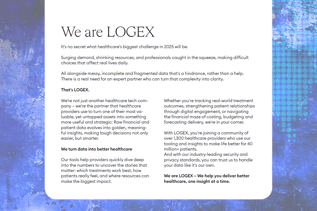Share this
Each autumn and winter, paediatric departments across Europe face a familiar challenge: a surge in respiratory tract infections (RTIs) among young children. These seasonal waves stretch resources, fill hospital beds, and demand swift, informed responses from healthcare professionals.
But infants and young children are not the only ones affected. RTIs are a major concern across all ages, especially for elderly and those who are immunocompromised. For these populations, infections with RSV, influenza virus, and SARS-CoV-2 may lead to severe complications, longer hospital stays, and higher mortality risk. Understanding and preventing RTIs, therefore, is not just a paediatric priority: it’s an entire community health imperative.
While vaccination and immunisation programmes are key tools in managing this burden, we recognise that decisions around vaccinating infants are deeply personal. Parents and caregivers rightly want to understand the real-world impact of these interventions: not just what works in theory, but what works in practice.
This is where reliable evidence becomes essential.
Similar to scientists and clinicians, we believe that healthcare decisions should be driven by trustworthy data. Our work helps to uncover real-world evidence. A recent example of our work in collaboration with Sanofi illustrates this. Using the LOGEX RTI Observatory, researchers analysed hospitalisation data across Spain and the UK over three consecutive RSV seasons. By comparing hospitalisation rates before and after the introduction of immunisation programmes, they found highly significant reductions in RSV-related admissions among young children.
At ISPOR Europe 2025, we’re presenting a scientific poster on the LOGEX RTI Observatory, our pan-European initiative that aggregates hospital and microbiology data to monitor RTI trends and evaluate public health interventions. By tracking pathogens like RSV, influenza virus, hMPV, and SARS-CoV-2, the Observatory provides timely, actionable insights for clinicians and policymakers.
Key insights include:
This Observatory does not only make it possible to clearly reflect clinical efficacy; it also shows how different approaches perform in daily practice healthcare settings, across diverse populations and healthcare systems. It helps clinicians, policymakers, and researchers understand not just if an intervention works, but how well, where, and for whom.
In a landscape where questions are valid and choices are complex, strong evidence isn’t just helpful: it’s essential. At LOGEX, we’re proud to support policymakers, healthcare professionals and researchers by providing the insights that lead to better care, smarter policy, and more confident decisions, for patients of every age.

Get the latest insights, industry trends, and updates on how LOGEX is transforming healthcare with data-driven solutions.